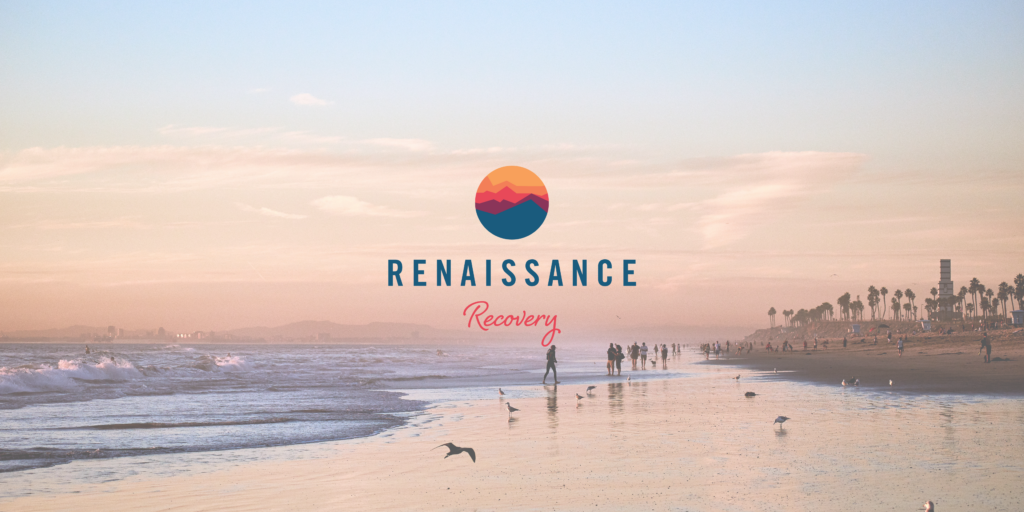Hydrocodone addiction can easily occur as this powerful opioid painkiller leads to physical and psychological dependence.
Need help getting addiction treatment?
SAMHSA recently published data from the annual National Survey on Drug Use and Health (NSDUH 2020). While this data shows that alcoholism and drug addiction both increased significantly in the United States from 2019 to 2020, the total number of adults in the US with opioid use disorder (OUD) decreased.
Even if the opioid epidemic is not yet resolved, this encouraging decrease in OUDs suggests that efforts to limit the prescription of opioids combined with the effective medication-assisted treatment of OUD are both going at least some way to minimize hydrocodone abuse and the abuse of other prescription opioids.
What is hydrocodone used for, then?
What is Hydrocodone?
A prescription opioid painkiller, hydrocodone is prescribed for the treatment of moderate to severe pain.
Hydrocodone contains the following active ingredients:
-
- Hydrocodone: A potent synthetic opioid, activating the same neurotransmitters as opiate narcotics like heroin.
-
- Acetaminophen: This is the active ingredient found in the OTC painkiller Tylenol.
Vicodin tablets contain hydrocodone in the following levels:
-
- 5mg
-
- 7.5mg
-
- 10mg
Depending on the dosage of hydrocodone, each tablet of Vicodin contains between 300 mg and 325mg of acetaminophen.
Typically, one hydrocodone tablet is taken every 4 to 6 hours throughout the day when used as prescribed. In the event of hydrocodone addiction, people often consume much higher doses.
Is Hydrocodone an Opioid?
Yes, hydrocodone is an opioid pain medication. It binds to the same receptors in the brain as other opioids like morphine and oxycodone, producing pain relief but also carrying a high risk of dependence and addiction.
SourceIs Hydrocodone Addictive?
So can you get addicted to hydrocodone? Yes, long-term use of this powerful painkiller can lead to physical dependence and/or addiction.
Hydrocodone was reclassified as a schedule II controlled substance by the US Drug Enforcement Agency in late 2014. Previously, hydrocodone was under Schedule III of the CSA (Controlled Substances Act).
The medication was reclassified due to the strong abuse potential identified for both Vicodin in isolation, and also other combination drugs containing hydrocodone.
Any use of hydrocodone other than directed, and all hydrocodone use without an underpinning prescription is considered hydrocodone abuse.
The symptoms of hydrocodone abuse will differ from person to person, but there is one constant of Vicodin abuse: tolerance, physical dependence, and addiction will all follow as a result of sustained abuse.
Brand Names
You can find hydrocodone in the following branded forms:
-
- Norco
-
- Anexsia
-
- Zydone
-
- Lortab
-
- Maxidone
-
- Co-Gesic
-
- Ceta Plus
-
- Lorcet
-
- Hycet
-
- Stagesic
-
- Dolorex Forte

What Does Hydrocodone Do?
Hydrocodone is prescribed to relieve pain for up to six hours. It is routinely prescribed by medical professionals for the relief of post-surgery pain.
Like all opioids, hydrocodone has a strong potential for abuse and addiction, with tolerance quickly building – more on this below.
Hydrocodone can be toxic to the liver. It was discovered that acetaminophen can trigger liver damage and severe allergic reactions in large doses. Due to this, the FDA changed guidelines on products containing acetaminophen in 2011. A limit of 325 mg of this substance was placed on painkillers like Vicodin and Percocet.
Does Hydrocodone Make You Sleepy?
Yes, hydrocodone is known to cause drowsiness as a common side effect. This is due to its interaction with the central nervous system. Drowsiness can impair your ability to drive, operate machinery, or perform other activities requiring alertness.
SourceHydrocodone Side Effects
In addition to the pain-relieving properties of Vicodin, many potential side effects manifest. This occurs with all hydrocodone combination medications.
If you experience any of the following symptoms severely, or if the symptoms do not dissipate, inform your healthcare provider. Do not suddenly stop taking hydrocodone without medical guidance and supervision.
The most common hydrocodone side effects include:
- Anxiety
- Lightheadedness
- Drowsiness
- Constipation
- Fuzzy thinking
- Feeling unusually happy or sad
- Problems urinating
- Dry throat
- Itching
- Rash
- Pinprick pupils
You should call your doctor immediately if you encounter any of the following serious hydrocodone side effects:
- Chest tightness
- Decreased libido
- Sexual dysfunction
- Irregular menstruation
- Nausea
- Vomiting
- Weakness
- Appetite loss
- Dizziness
- Slowed breathing
- Irregular breathing
- Agitation
- Hallucinations
- Sweating
- Fever
- Diarrhea
As with all hydrocodone combination products, you could also experience other side effects not listed above. Contact your healthcare provider immediately if you encounter any problems while taking hydrocodone.
Hydrocodone Withdrawal
Hydrocodone withdrawal, like all opioid withdrawal, can be intensely uncomfortable, but it’s also fairly fleeting. Symptoms will dissipate in most cases after 7 to 10 days.
The half-life of Vicodin is 4 hours, so withdrawal symptoms present around 8 hours after the last dose.
Hydrocodone triggers similar withdrawal symptoms to other opioid painkillers. These include:
- Psychological changes: Mood swings, irritability, confusion, and anxiety.
- Physical symptoms: Enlarged pupils, tremors, sweating, diarrhea, fever, cold-like symptoms, nasal congestion, vomiting, and nausea.
- Appetite changes: Reduced hunger and cravings for Vicodin.
If you feel hydrocodone rehab would give you the strongest chance of discontinuing the use of this powerful opioid, we can help here at Renaissance Recovery.
What To Expect at a Hydrocodone Rehab
If you or a loved one are struggling with hydrocodone addiction, getting into a good rehab center is an important step in the recovery process.
According to NSDUH (National Survey on Drug Use and Health), of the 2.7 million U.S. adults with opioid use disorder in 2020, only 822,000 got treatment for addiction to prescription opioid painkillers. That leaves a large portion of the population at risk without the proper treatment and can lead to serious side effects and life disruptions if not addressed.
However, for those who have decided to get help, knowing what to expect from hydrocodone rehab can make it easier to connect with the right level of care.
Whether you require inpatient or outpatient treatment, it is typically recommended to detox from hydrocodone under medical supervision. At a licensed medical detox center, the treatment team may administer a variety of medications to mitigate the hydrocodone withdrawal process. You will also have continuous emotional and clinical care available, reducing the chance of complications and relapse.
Types of Hydrocodone Addiction Treatment
Whether you transition directly into an inpatient program (residential rehab) or you prefer the flexibility of an intensive outpatient program, you will have access to the same evidence-based therapies. Inpatient rehab for hydrocodone addiction involves remaining at a treatment facility for 30 to 90 days. Outpatient rehab involves scheduled weekday therapy sessions in an outpatient setting. Between treatment sessions, you return home or to a sober living community.
Detox addresses the physical component of opioid dependence. Recovery from opioid addiction is a chain of events that begins with detox.
In ongoing inpatient or outpatient hydrocodone rehab, you will tackle the psychological aspect of opioid addiction.
MAT (medication-assisted treatment) is proven effective for treating opioid use disorders like hydrocodone addiction. There are three medications approved by the FDA that can reduce the severity of cravings and withdrawal symptoms, both during detox and throughout ongoing treatment.
You will also engage in counseling and psychotherapy sessions at hydrocodone rehab.
Individual counseling sessions allow you to explore the specifics of your addiction, while group sessions allow you to draw support from peers with lived experience of opioid addiction.
Psychotherapy is a form of talk therapy. CBT (cognitive behavioral therapy) is most commonly applied to treat addictions and mental health conditions. Working closely with a therapist, you’ll identify what triggers you to use hydrocodone. You will also develop healthier coping mechanisms that will be beneficial in your ongoing recovery.
The best hydrocodone rehabs will equip you with an aftercare plan that involves relapse prevention strategies and access to an alumni program.

Hydrocodone Rehab at Renaissance Recovery
At Renaissance Recovery center, we specialize in the outpatient treatment of addictions, delivering the support and structure you need to combat substance use disorders like OUD without the cost of restrictions of inpatient treatment.
Our hydrocodone addiction treatment is available via the following delivery methods:
- OP (outpatient program)
- IOP (intensive outpatient program)
- PHP (partial hospitalization program)
We also offer virtual addiction treatment for anyone unable or unwilling to attend traditional outpatient therapy.
When you engage with treatment at the right intensity for the severity of your hydrocodone addiction, you’ll have access to these evidence-based therapies:
- MAT: Medication-assisted treatment can be a valuable component of a comprehensive hydrocodone addiction treatment plan, streamlining the discomfort of withdrawal and minimizing cravings for hydrocodone.
- Psychotherapy: MAT is always most effective when delivered alongside psychotherapy like CBT (cognitive behavioral therapy) and DBT (dialectical behavioral therapy). Discover what triggers you to use hydrocodone by working with your therapist, then learn how to implement healthy coping strategies instead of reaching for a hydrocodone pill.
- Counseling: Benefit from both individual and group counseling to explore the psychological aspect of addiction in general, and hydrocodone addiction in particular.
When using hydrocodone starts causing more problems than it is solving, it’s time to fight back. Reach out to admissions at Renaissance and we’ll help you to leave opioids behind you. Call 866.330.9449 today.



